One of my first jobs in SEO was to prepare keyword research reports for leads & new clients of the agency that had just hired me.
We had to convince them there was money to be made in SEO, so we used a big ol’ report of keywords related to what they do and their search volumes.
Since that day, I’ve been using & believed a mix of search volume and estimated traffic by tools like Ahrefs or SEMRush to pick the best keyword opportunities for our sites.
You’d be using the tool to look for the best ratio of low competition against high traffic & buying intent. The rational approach of sorts.

But today, I want to share the story of 2 keywords that may shatter the mindset of the more rational readers of this post.
And for this, I apologize, but it’s up to you to stop reading now .
Still here? Let’s get going.
Keyword 1: “Pet Blogging”
This story started a few months ago when our in-house SEO showed me the keyword “pet blogging” as a potential candidate for the Authority Hacker blog.
I was really impressed.
There is a lot of search volume and decent traffic potential, with relatively low KD / Competition.

So we got to work and produced the blog post targeting that keyword.
We didn’t look at it for a while as we got busy with other projects, and I guess our team did a decent job because we quickly took the #1 spot for it.
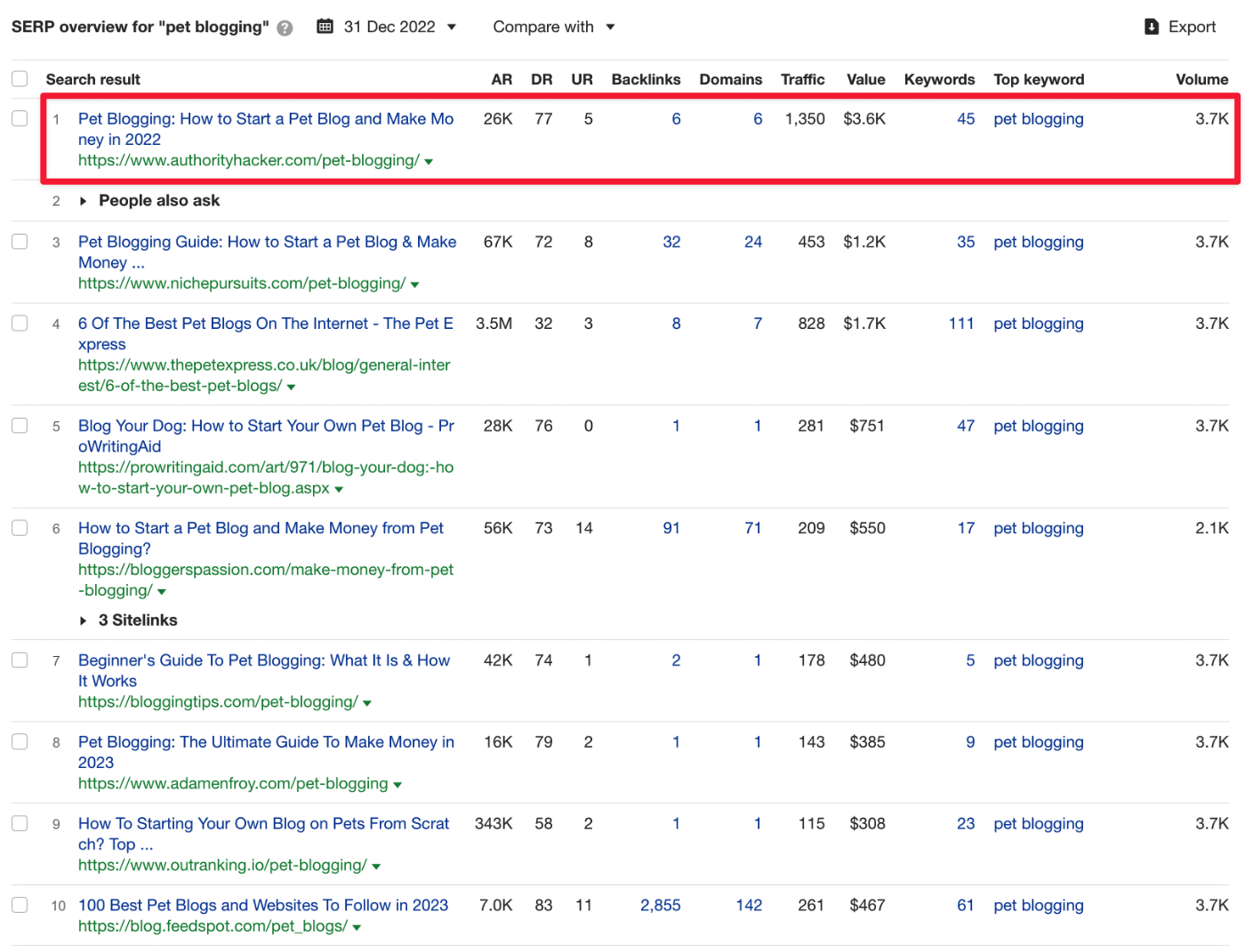
When I saw that, I went to our SEO and asked, “How’s it going?”
And she replied, not so well and shared this analytics screenshot with me.
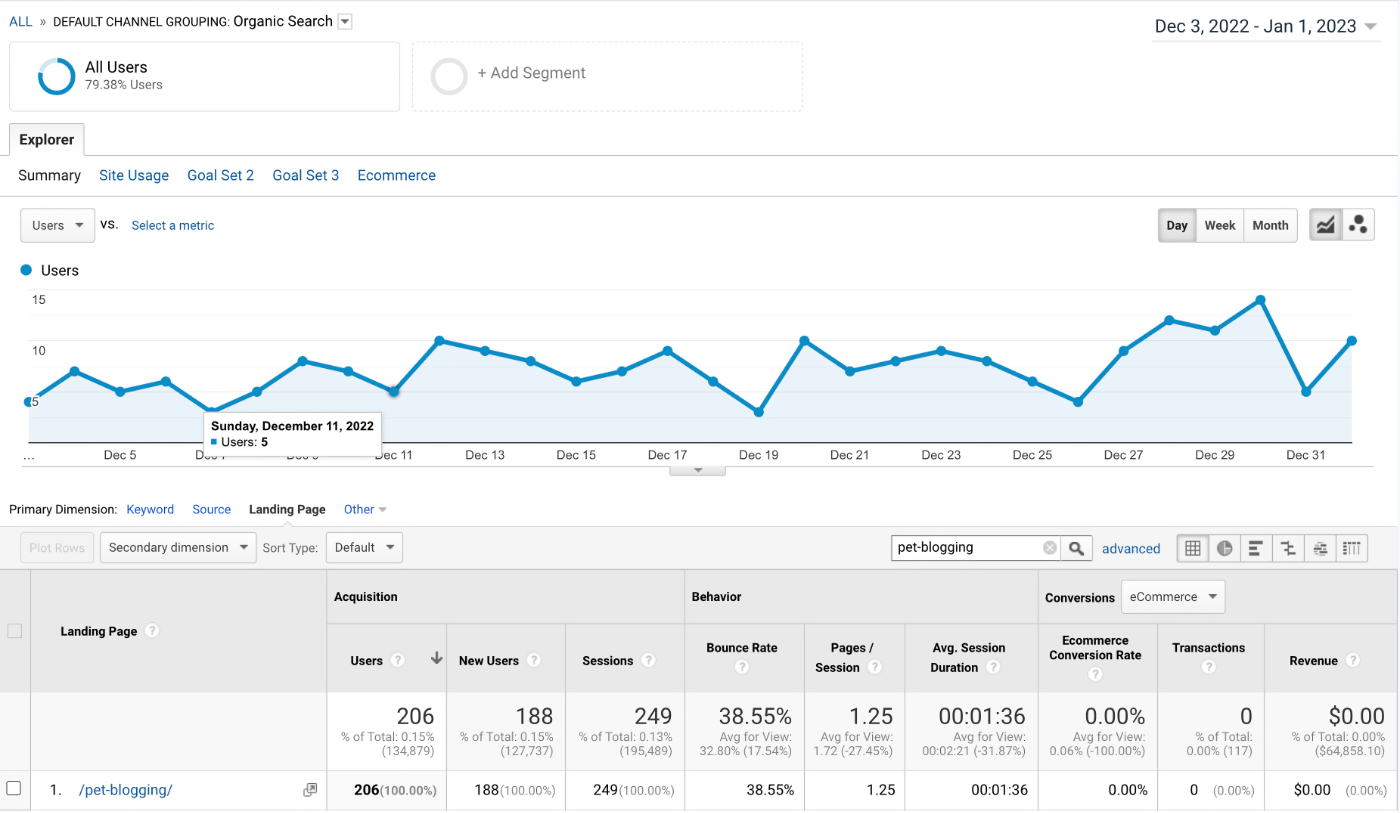
This was FAR from Ahref’s traffic estimates, and I was highly disappointed.
I did check to see if this was an Ahref’s only issue, but really, SEMRush painted the same picture for the keyword.
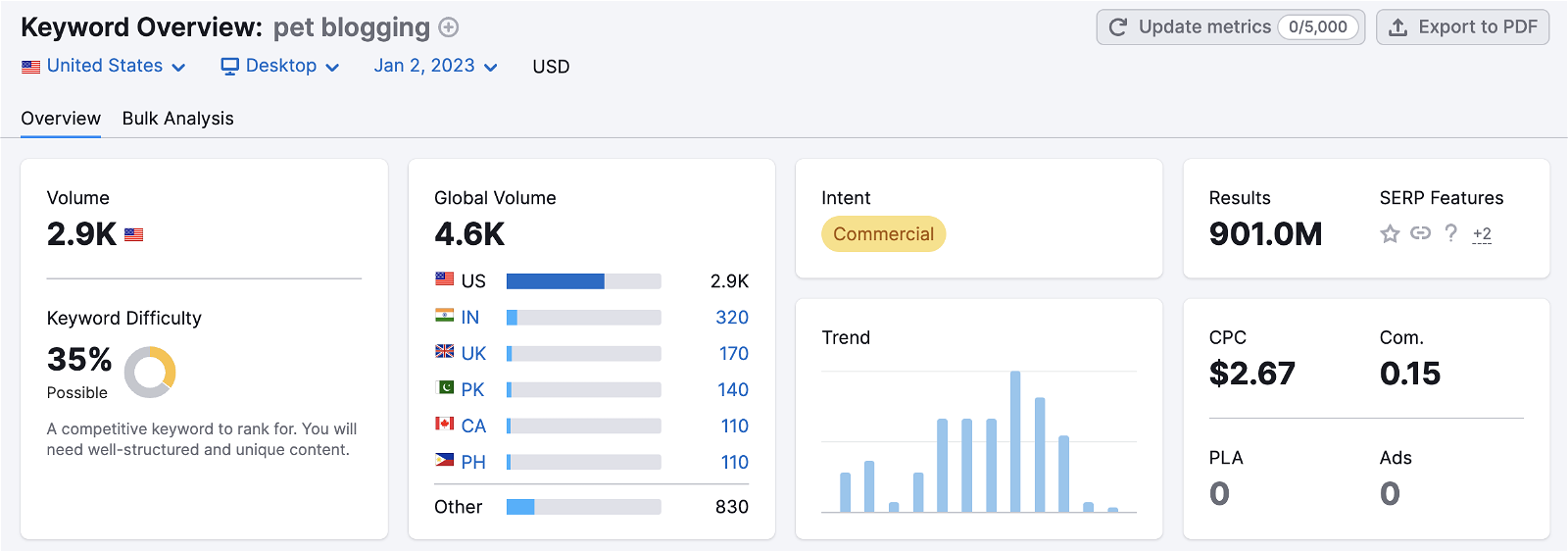
To compare this page to the other page in this mini case study, I decided to add up the search volume of all the queries the page ranks for in the top 3 according to Ahrefs.
The total was 5,740.
Keyword #2: [redacted]

Sorry guys, but I can’t possibly let Gael publicly share this kind of competitive keyword data on a blog post.
Mark Webster
Co-Founder of Authority Hacker
Mark won’t let me share the exact keyword, so I’ll blur out the sensitive information.
According to Ahrefs, this second keyword has 4.5x less traffic potential and 22x less global volume than “Pet Blogging.”

If you put them side-by-side and have to pick one, you’ll pick “pet blogging” every single time.
Yet we also decided to produce that content because we had a good yet unjustifiable feeling about the keyword.
Plus, the intent was good, and we’d rather have a bit of high-converting traffic than a lot of non-converting traffic.
Fast-forward a few weeks, and we’re also ranking #1 for that query, so I went to fist-bump the SEO team for their excellent work .
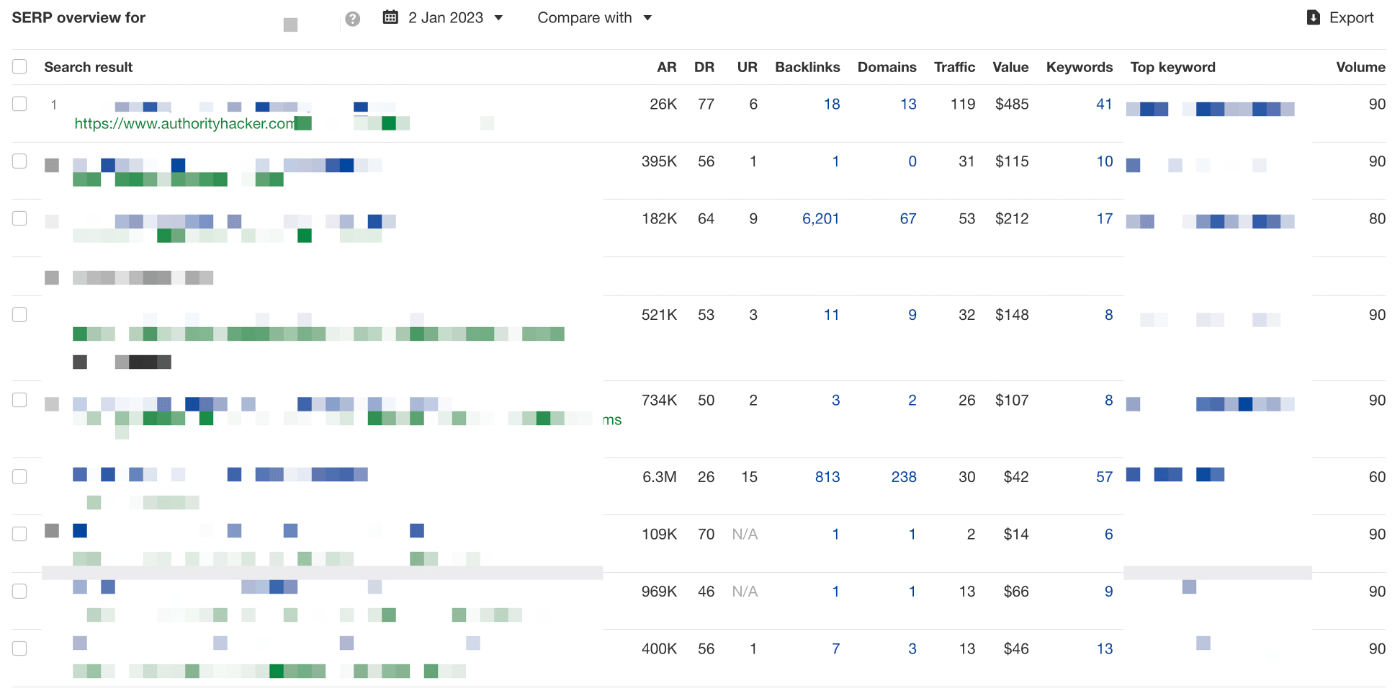
Of course, I was curious about the organic traffic, especially after the disappointment of a keyword “pet blogging” had been.
Here’s what they sent me:
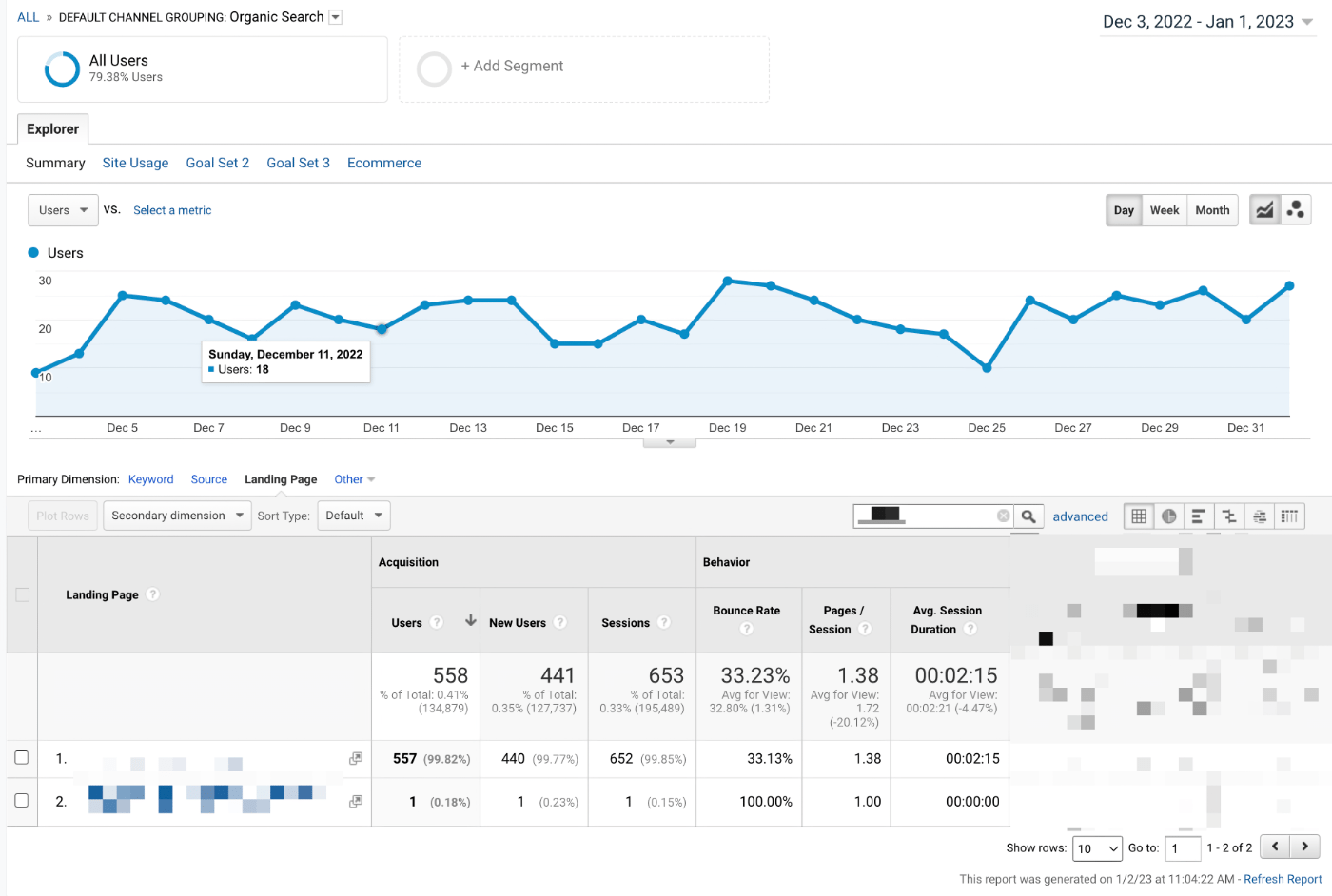
This was my face:
This page Ahrefs told me would get 4.5x less traffic than “pet blogging” was racking 250% more visitors at the #1 position.
AND the query was much more “commercial.”
To ensure this difference wasn’t due to “lots of long tail keywords ranking,” I again added up the search volume (according to Ahrefs) of all the top 3 rankings for the page.
The result was 390 against Pet blogging’s 5740.
That’s almost 15x lower if you trust keyword tools.
What Can We Learn From This
I’m the kind of guy that likes rules, data, and certainty.
It comforts me in a way. I see a number; I know what to expect; it makes decision-making easy.
The problem is, while the tools we use like to portray themselves as a substitute or an equal to something like Google Analytics to convince nerds like me to drop $150/month on a subscription, they’re, in fact, wildly inaccurate, and you can’t take their output at face value.
They often get data from questionable sources and put lipstick on a pig with a slick user interface.
Don’t get me wrong, they’re still extremely useful in most cases, and I’m not telling you to drop all keyword tools right now.
But there is a case to be made that when all marketers use the same biased tool database, there are many diamonds in plain sight that most miss.
And the only way to know is to take a few leaps of faith when a keyword seems to match exactly the kind of traffic you’re looking for, regardless of the displayed search volume/search traffic.
Do you have similar stories or questions? I’d love to hear them on the Twitter thread of this post.






